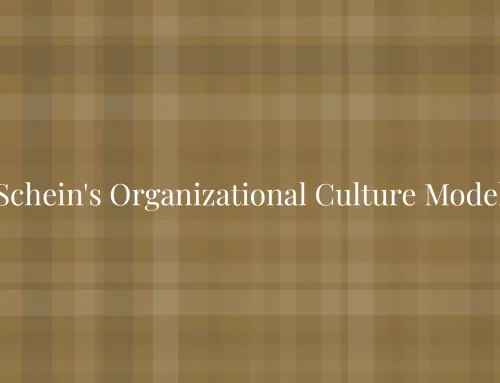One thing to remember is that in some ways, consulting firms operate as many mini-firms in practice. It’ll be entirely different people serving different clients. Some of these groups are extremely successful and are poster children of what the industry should be. While, some have issues that prevent clients from getting their value.
The full value of a consulting firm’s efforts might not be apparent to everyone involved. Executives keep engaging consultants because they know the value the consulting firms deliver.
In my opinion, consultants haven’t done a thorough job, if there aren’t some annoyed stakeholders after the engagement. Usually, someone client stakeholder has skeletons in the closet or a pet project that he / she wants to die.
On the whole, consulting firms exist and continue to be retained for a reason. Client impact is the core metric of success at all levels.
More than echo chambers
In many cases a consulting firm will end up telling you what you want to hear
Sometimes, this is true. But, it’s also a big oversimplification. Not every consulting firm is simply brought on to confirm an executive’s intuition. Sometimes, companies engage consulting firms to execute on topics they don’t know or can’t do themselves. Even if they had time or resources, some companies engage consultants to tap into their specialist knowledge.
Case: IT Consulting
Sometimes, IT consulting firms or those with a large IT consulting divisions (such as Deloitte & CapGemini,) will build technical solutions that their client can’t build themselves. As one of the authors in the conversation put:
A classmate of mine who was a CS major works at such a firm and has basically worked on one project his entire consulting career for the government of one of the biggest cities in the US, building software to replace their ancient, outdated city-wide accounting systems. Now, this is neither telling the city fuzzy MBA-speak on what they want to hear nor a matter of the labor pool (though I suppose regarding the latter, the city could employ full-time coders).
Case: Economic Consulting
Economic consulting firms calculate damages in intellectual property disputes and securities class action lawsuits. They also provide expert witnesses to testify in court. Sometimes these firms will help efficiently price things, such as during utilities auctions. Or, they help set rates in projects with other regulatory agencies. There’s a huge array of consulting work that involves crunching numbers for litigation, mediation, arbitration, etc. These activities involve working with data, providing legitimacy in court with the leading academic expert in the field, etc. These arent’t activities that the client simply wants to hear about. Most client stakeholders are just happy to have external consultants do the brunt work on their behalf.
These are some examples of potential value that consulting firms deliver.
What value does a consulting firm provide?
The actual tangible product of consulting firms may be questionable value. As the Management Consulting Association (MCA) puts it, consulting entails:
the creation of value for organisations, through the application of knowledge, techniques and assets, to improve business performance
The tangible value refers to the quantifiable benefits a consulting firm can provide to its client. Usually, this is through deploying its methodologies and frameworks. The frameworks allows immediate quantifiable value to be added and assists the initial diagnosis.
One way to explain it is in terms of transactional cost economics[1]. According to this, clients’ decision to employ a consultant represents a trade-off between external consultants and existing company resources. Usually, this decision is based on the monetary value added minus the cost of transaction. Hence, consulting firms should continuously deliver more value than the cost of their engagement.
Perceived value
In a Forbes Insight Study:
- 92% of executives reported projects’ success
- 62% agreed that the benefits of the project correspond to the desired outcome
- 30% of clients stated that the benefits exceeded their expectations
These favorable statistics illustrate the success rate of consulting. Yet, only half of the 92% who indicated that their consulting projects were successful, rehired the same consultants on a new project.
This brings us to another important aspect of value created – the perceived value. If clients are overall satisfied working with a particular firm, then why would they take their business elsewhere?
Consulting is very much a people’s business. Building and maintaining relationships is big part of its success. Attracting new clients and retaining old ones is never an easy task. It is hard to generalize all relationships.
However, from Forbes’ survey, it’s clear that consulting firms should put more effort into their relationships. They should employ a holistic approach to landing opportunities with existing clients, while engaging new ones.
Long term business success requires sustainable client strategies that are rewarding to both, clients and consulting firms. The strategies should transcend one-off engagements.
Problems are big
$1 million for a project team sounds like a lot of money. It’s hard to wrap your head around relative to other prices in the world. However, if you’re working on a $100 million problem, it’s not really that high at all. Even a 10% effective solution ($10 million in cost savings) provides the client a 10x return on investment.
Overall, there’s an even split among engagements that provide no value, breakeven with cost and deliver additional value. Engagements that deliver additional value often provides orders of magnitude more value than cost. Clients often consider such an engagement a gamble that’s worth taking.
However, some consulting engagements are low value that the client could not realize a positive return, even with 100% perfect execution. This is an example that demonstrates irresponsibility of both, the client and consulting partners that scope the work.
Resources are much greater
Many client stakeholders question the value that consulting associates deliver that justify their several thousand dollars per day billing rates. However, you should realize is that an associate’s work is not the same as 1 full time equivaluent (FTE) of an internal resource. Aside from longer hours, the billing also reflects is a myriad set of activities going on behind the scenes to make everything else come together. As another author quotes on Quora:
On any given day, I might have a graphic designer in India working on my PowerPoint (the famed pretty slides don’t come from my own time or skills, trust me), an offsite research analyst working on mining a database, and be conversing with an industry expert with 20+ years experience. At one point, there were six people in total doing the work that was presented as “mine”.
Consulting firms are exceptionally ruthlessness about having the right people working on the right things. Partners help scope the engagement and provide helpful perspectives on the scope or the client organization that the Associate needs. The Associate the client sees on a day to day basis is a process manager and synthesizer, not the content expert. In short, the client sees just the tip of the staffing iceberg.
Privileged, unfettered access
Sometimes, companies bring in consultants to justify a pre-ordained solution. Often, some client stakeholders know the solution to the problem the organization faces. However, they can’t get traction because of political barriers, poor communication, lack of skills or dedicated resources. This is a reality of how large organizations, composed of humans, work.An important mark of a good consultant is to give people proper credit where it’s due.
Consulting firms have the ability to poke around and work across departments and much more. Practically, such access matters a lot. Often, the big breakthrough is an idea from someone at the bottom of the organizational chart. Consultants infuse life into that idea, organize data to support the idea from another department, get someone from another department to execute the idea, and get the initiative signed off by top management.
Political leverage
CEOs that want or need to make an unpopular decision often bring in a consulting firm to help. This provides ammunition to recommend an unpopular or risky decision to the board. For example, expansion into a new business line or geography, or shutting down a plant. The CEO can also distance him / herself from an unpopular decision by blaming the consultants. Finally, if things go wrong, consultants are a handy scapegoat.
Pool knowledge across functions
Consultants are not part of the client’s culture, politics, or org culture. In the initial days, as the consulting firm builds a fact base, consultants usually interview people across functions. In large companies, cross-functional problem-solving rarely happens. Just getting different functions in a room typically unlocks creative problem solving.
Pool knowledge across levels
Similarly, consultants interview, watch, and tag along with people down the orgnizational structure, often starting with customers and moving through sales and line roles. CEOs and the executive team of large companies rarely do this (exception being their largest customers). Consultants deliver tremendous insights to their clients by doing this.
Deep focus on one problem
The biggest value is that you have a dedicated team of pretty smart people who are generally unbiased that can focus deeply on one particular problem. At a company, in any role, you have a day job and at best can focus only a portion of your time on a particular issue.
References
| ↑1 | Reconsidering value in consulting |
|---|




